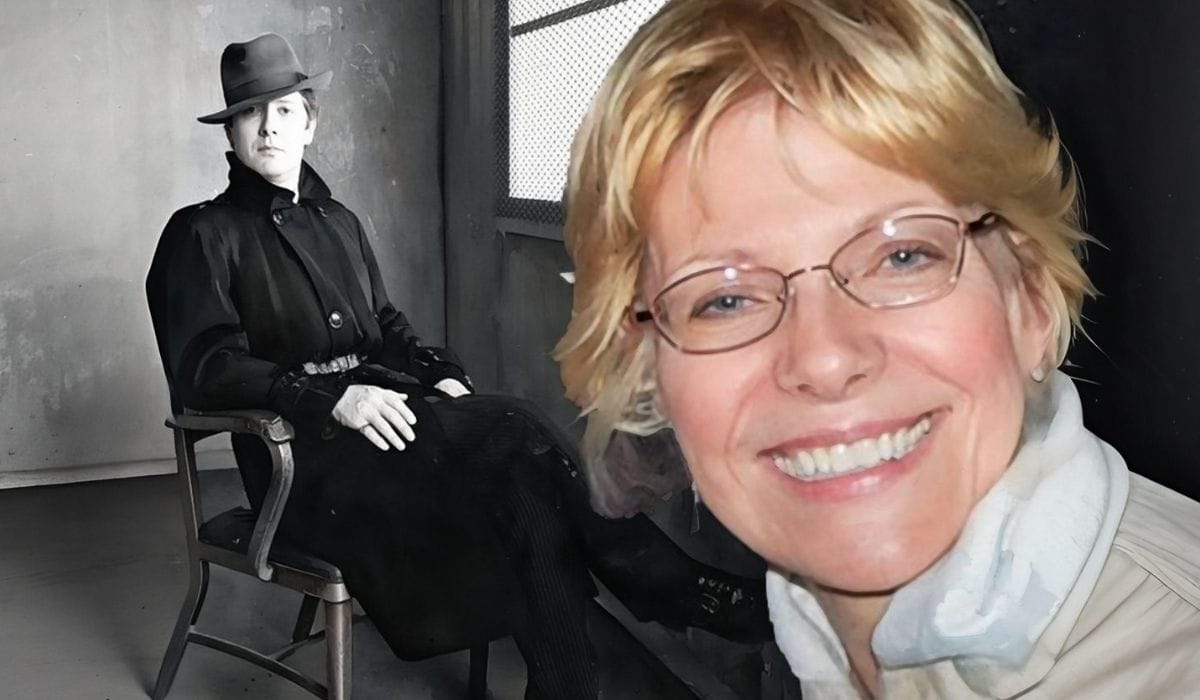The Truth in the Lie: What We Owe Our Stories in a World That Demands Masks
“There’s no dust in her Dustbuster!” He’s surrounded by surfaces scrubbed of authenticity, by people and environments obsessed with performance rather than truth. In that instant, he aches to break out of the illusion

Hey Red! Remember when I photobombed you in the studio that day in 2013 just before Blacklist came out? Ohh, you don’t?
Well, let me just say that I’m a fan but I was a fan of yours before you became the notorious Red. Stargate of course (and now I’m wondering if you all knew something we didn’t know back then — you know the whole portal thing), and Sex, Lies, and Videotape, but I was a big fan of Supernova and White Castle, too. You have delivered many great lines but this one is underappreciated and I think especially poignant these days in 2025.
“There’s no dust in her Dustbuster!”
You you have shared many realizations with us over the years through your art so I hope this carries it forward.
Sometimes the deepest epiphanies are triggered by the smallest, strangest details. In White Castle, when Spader’s character notices “there was no dust in her Dustbuster,” he’s struck not just by the literal emptiness of a cleaning tool, but by what it represents. It’s a perfect metaphor for a life meticulously curated to appear spotless, untouched by real living. In that moment, the emptiness is louder than any mess as he realizes he’s surrounded by surfaces scrubbed of authenticity, by people and environments obsessed with performance rather than truth. In that instant, he aches to break out of the illusion, to reject the emptiness of appearing perfect and instead seek the messy, vulnerable, and ultimately honest reality of being fully alive.
Years later, in The Blacklist, he embodies that lesson as Reddington: a man who no longer hides from the grit, but instead lives his lies openly, almost artfully, turning deception itself into a strange kind of truth. In both roles, Spader shows us that sometimes, the only way to survive in a fake world is to be brutally honest about your own contradictions.
There’s a reason Raymond “Red” Reddington resonates with audiences beyond his world-weary charm and criminal mystique. He is, at heart, a man who has lived a thousand lives, all of them tainted, none of them entirely true. What’s arresting isn’t simply that Red is a master of deception; it’s that through all his masks, betrayals, and necessary half-truths, he still manages to leave behind a story worth telling.
The truth is, Red’s world is not so different from ours, especially if you look beyond the obvious criminality and see the metaphor in the machinery. Anyone who’s watched the rise and fall of stars, particularly in industries like music or entertainment, knows how quickly integrity can become a luxury, how often truth must be bartered just to survive the corruption.
Most people think corruption is a choice, a clean break from the honest path. But in reality, it’s often a creeping compromise, a thousand small “yeses” to things that feel, at first, harmless or even noble.
In the music industry, artists are routinely shaped by forces more powerful than themselves: handlers, contracts, curated relationships, manufactured stories. A “brand” must be sold, sometimes at the cost of the artist’s actual life, voice, and truth.
Some learn to navigate this with cunning, others with rebellion. Many, like Red, learn the art of living between worlds, one foot in the lie, the other clinging to whatever truth can survive. They become both their own story’s villain and its unreliable narrator.
When You Can’t Speak the Truth
What do you do when the truth will ruin you — or worse, destroy someone you love? This is the paradox of the performer, of the person trapped by circumstance or by choice. Not everyone has the privilege of speaking freely. Sometimes, to survive, you must become an actor in your own life, rehearsing lines handed down by unseen directors.
But what happens to the soul beneath the performance? How do you reconcile the story you want to live with the story you are allowed to tell? For some, it is the hope of redemption — of someday, somehow, setting the record straight. For others, it’s a quiet rebellion: slipping bits of truth into the music, the performance, the pauses between the spectacle. A wink. A lyric. A hesitation on stage. Signals to those who know how to listen.
What We Owe Our Stories
As suggested by Doctor Who, “In the end, we’re all just stories. Make yours worth reading.” The wisdom is less about living without flaw and more about what you do with the cards you’re dealt. If you’re forced to lie, by a corrupt system, by the circumstances of survival, by the world’s appetite for fantasy, perhaps the truest thing you can do is hold a space for your real self in the shadows— to keep the parts that matter uncorrupted, even if they’re unseen.
Red’s redemption is not that he never lied. It’s that, in the end, there was something in him worth redeeming. The same can be said for anyone who finds themselves on a stage, literal or metaphorical, forced to trade truth for acceptance. In the secret places, behind the mask, between the notes, they are still writing their story.
And maybe, just maybe, that’s the part of the story that endures. The part that was true, even when it couldn’t be spoken out loud.



